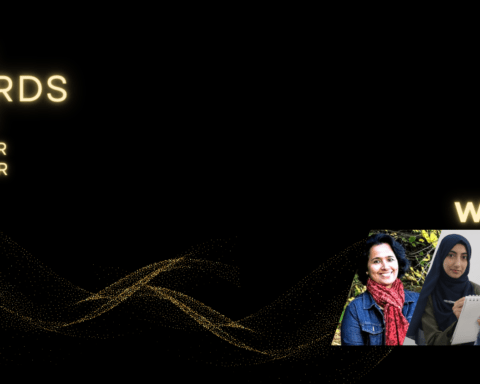Renowned migration scholar, Graeme Hugo, Australian Research Council (ARC) Professorial Fellow and professor of geography and director of the Australian Population and Migration Research Centre at the University of Adelaide, was in Ottawa recently as a faculty member for the Metropolis Professional Development inaugural training week. Prof. Hugo granted New Canadian Media a short, sit-down interview:
Q: From your work in population studies, how convinced are you that immigration is the answer to today’s global challenges?
A: It would be wrong to think that migration is the answer to an aging population. But it is part of the answer. Aging is a reality. Between 2010 and 2020, populations between the ages of 18-64 will decline by 20 million in OECD (Organization for Economic Co-operation and Development) countries and will increase by 1 billion in low-income countries. But migration is not a solution to aging. Migrants also age. In Australia, 1 in 3 persons is born outside the country. In the 1950’s and 60’s, there were big waves of migration (to Australia) and studies have shown that they can contribute by increasing productivity of the population. But one of the ways of increasing the productivity of the workforce, is also to increase the age of retirement. So migration should be part of a much larger integrated strategy. The demographic lesson in this is that migration is going to continue to occur, so to try and stop it altogether will not solve any problems.
Q: How is migration different now than it was a few decades ago?
A: Migration is much more complex these days. But it has also become much more democratic and broadly based than it used to be. But the change now is that the difference between countries is widening. There are wider wage differentials for instance, and differences in rights and freedoms which are greater now (between countries) than they use to be. The 3 Ds as I call it (development, demography and democracy) are more significant now. As I see it, there are three factors that drive migration now: The first is networks. Every time someone moves, there is a movement of social capital. Networks can be very intensive and intimate, as people are now in daily contact with each other. The second is the immigration industry. Legal and illegal migration, lawyers, travel providers, agents, etc., are a major driver of migration. And a third driver is the globalization of the labour market. People are looking across countries for jobs now. This is a function of changes in the global economy. None of these factors are going to go away. There is the belief that so much policy making is predicated that we won’t need migration after a while. But this is not true.
Q: What are the best ways to manage migration?
A: Managing migration is not easy. But whoever is talking about it is talking about policy. Countries which earlier had very little migration now have a lot and don’t have the institutions to deal with it. The latest UN data shows that South to South migration (migration between developing countries) is increasing rapidly. The traditional thinking is that the top 5 Western countries are still the top destination for migrants. However, Asia is becoming a major destination. China, which is one of the largest countries to send migrants, is developing its own policy on migration.
Q: How do you think the area of migration studies should be evolving to reflect these new trends?
A: Migration has always been an interdisciplinary area of study, as it should be. What I would like to see (included) in migration studies is people who are involved in the migration process, rather than academics. We should be training people in migration careers. People should not be trained on border controls as police officers.
Q: How can we reflect the perspective of the immigrant into migration policy?
A: Most migration decision making around the world is not evidence based. It is based on bigotry, racism and political advantage. The most effective form of migration management is to base policy on evidence. We need high quality balanced research. The reality is that migration has had both good and bad effects. But right now, countries are only being presented the bad effects of migration. There should be a balanced presentation reflecting both sides.
Most migration decision making around the world is not evidence based. It is based on bigotry, racism and political advantage.
Q: How important is it to discuss environmental change in the migration policy discourse?
A: The overwhelming evidence is that environmental change has been neglected in the past. We are seeing more and more disasters occur. In the past and in the future, most of the mobility environmental change is going to create will be within countries. The numbers of those being affected by climate change and those who will actually move are different. It is rarely a single case of migration and it is flawed to think that one can create a dedicated argument on environmental change for migration.
Q: What can Canada and Australia learn from each other in the immigration context?
A: I honestly think that I am not very close to the immigration bureaucracies in both countries. But both countries are very close. There are many cases like the regional migration programs in Australia that take from Canada. Both countries are in a category by themselves in that they have wholly planned migration policies and there is a high acceptance of immigration. Because these migration programs are so similar, we have a lot to learn from each other. So there should be more comparative work between the two countries.





